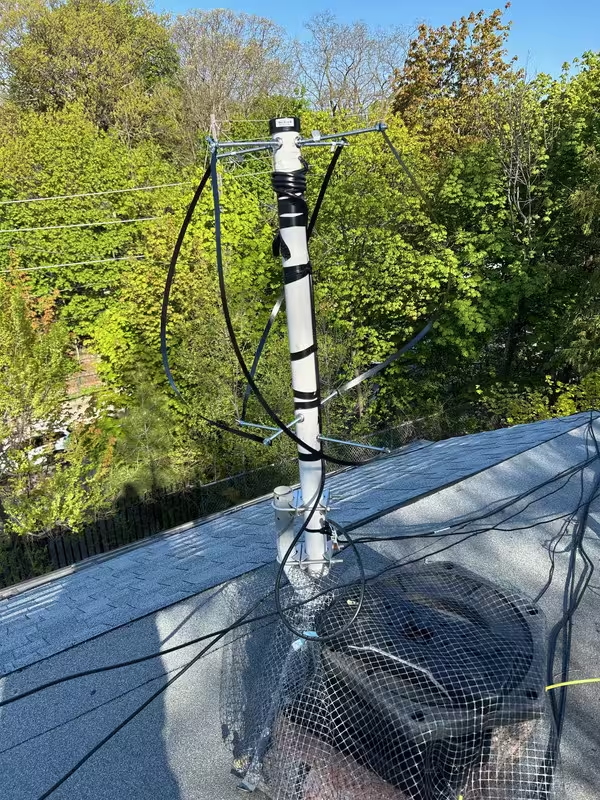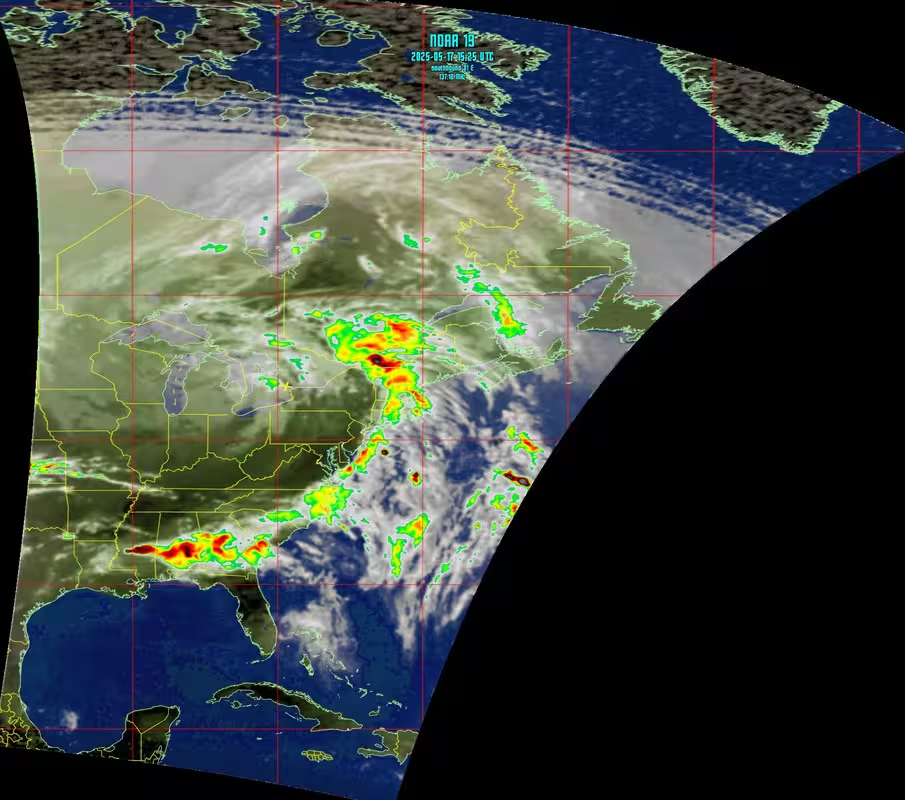- RadioActive
- Moderator
 Offline
Offline
Who Would Buy A Tiny AM Radio Stn. At 1700 On The Dial? This Mogul Did
Why would the owner of one of the most famous and high powered radio stations in the #1 market in the world buy a 10,000 watt outlet in the X-band part of the dial that served a small community well away from his home broadcasting area?
That's just what John Catsimatidis did. The billionaire owner of WABC-AM New York has acquired his third station, this one WRCR-AM in Rockland County, N.Y.. And what does he plan to do with this new bauble? For the moment, rebroadcasting - yep, WABC. (He already does this on a Long Island FM he previously purchased.)
The odd thing is that I'm pretty sure they can get WABC in the area of the newcomer's licence, so I have no idea why he would shell out the money for such a small station. There are hints in the article below that he may have other plans for the place, but no matter how much money he spends, I'm not sure he'll ever see a return on his investment.
Rockland's lone local radio station WRCR AM sold to NYC media group
- RadioActive
- Moderator
 Offline
Offline
Re: Who Would Buy A Tiny AM Radio Stn. At 1700 On The Dial? This Mogul Did
An update to this story: how much did it cost to buy this relatively obscure AM station in the X-band? According to official paperwork filed with the FCC, it was $600,000. What happens to it next remains to be seen - and heard.
FCC Filing Reveals Price Tag for Red Apple’s WRCR Purchase
- •
- Evuguy
- Member
 Offline
Offline
Re: Who Would Buy A Tiny AM Radio Stn. At 1700 On The Dial? This Mogul Did
I can see some technical merit here. I suspect the 770 signal possibly suffers from power line distortion in that area, since it is a distance away from the Tx site. This distortion has biggest impact to people listening in vehicles. The lower frequency AM stations are more impacted by phase distortion due to re-radiation and also leaky high voltage hardware on the poles, causing impulse noise (ie. static). In Toronto, I can think of a few spots where 640 and 680 suffer badly. Newer ears that grew up with digital are not accustomed to tolerating noisy reception spots and are at risk of tuning away. Noisy reception or lack of AM in some car models, is one reason why a lot of major AM News/Talkers in the US have bought up existing FM stations that were not getting decent ratings anymore.
- mace
- Member
 Offline
Offline
Re: Who Would Buy A Tiny AM Radio Stn. At 1700 On The Dial? This Mogul Did
Dxers also have a higher tolerance for noise since many of the stations they listen to can suffer from splatter, fading or distortion caused by a mixture of the ground and skywave signal. In their top 40 days, I experienced a fair amount of distortion listening to WKBW at night. WABC, WLS, WCFL and WOWO had far superior signals.
- RadioActive
- Moderator
 Offline
Offline
Re: Who Would Buy A Tiny AM Radio Stn. At 1700 On The Dial? This Mogul Did
I'm really not sure about this, but do stations in the X-band (1610-1700 AM) propagate as well as some of their more mainstream stations up the dial do? I wish there was a way to do an "X" band type expansion on FM. Imagine stations on 108-109. But I believe aviation and other services use the frequencies, so it likely wouldn't be possible.
- •
- tvguy
- Member
 Offline
Offline
Re: Who Would Buy A Tiny AM Radio Stn. At 1700 On The Dial? This Mogul Did
yep, both Toronto Airports are in the 118 Mhz Band. Polar Orbiting Satellites are in the 137.100 mhz to 137.900 band. I get multiple (automated) transmissions each day using a computer and a home-made antenna and RTL-SDR stick. I tried to upload a photo of one of the satellite passes from Thursday, but not having any luck wth the big yellow board system.
Last edited by tvguy (May 23, 2025 10:02 am)
- tvguy
- Member
 Offline
Offline
Re: Who Would Buy A Tiny AM Radio Stn. At 1700 On The Dial? This Mogul Did
2nd attempt to upload 137 mhz satellite photo.
- RadioActive
- Moderator
 Offline
Offline
Re: Who Would Buy A Tiny AM Radio Stn. At 1700 On The Dial? This Mogul Did
I'm not sure what form they're in, but if you can covert the image to a .jpg, you can use a freebie like this one to upload it to the web, copy the "for forums" code and paste it here.
- •
- tvguy
- Member
 Offline
Offline
Re: Who Would Buy A Tiny AM Radio Stn. At 1700 On The Dial? This Mogul Did
The photo was received from a NOAA weather satellite transmitting on 137.100 MHZ. It has a polar orbit which means that transmissions can be received in toronto for approximately 13 minutes per pass, a few times each day. Other NOAA satellites transmit on 137.620 and 137.9125. The photo shows weather conditions from the western part of Greenalnd, south to the Mexican Peninsula around Cancuun. Here is a home-made QFH antenna which I designed for weather satellite reception. Consists of some commonly found parts from Home Depot.
- Evuguy
- Member
 Offline
Offline
Re: Who Would Buy A Tiny AM Radio Stn. At 1700 On The Dial? This Mogul Did
Are the black elements that metal strapping that's used for shipping freight?
- tvguy
- Member
 Offline
Offline
Re: Who Would Buy A Tiny AM Radio Stn. At 1700 On The Dial? This Mogul Did
Yes, it is metal strapping. It bends very well to form a helix. The polarization of the NOAA weather satellites is “right hand polarization” - so, the straps are cut for optimal perfmance at 137 MHZ.
The straps are also light weight so don’t pose a significant wind load.
- Chrisphen
- Member
 Offline
Offline
Re: Who Would Buy A Tiny AM Radio Stn. At 1700 On The Dial? This Mogul Did
The RTL-SDR blog is full of such neat DIY projects.
 1 of 1
1 of 1